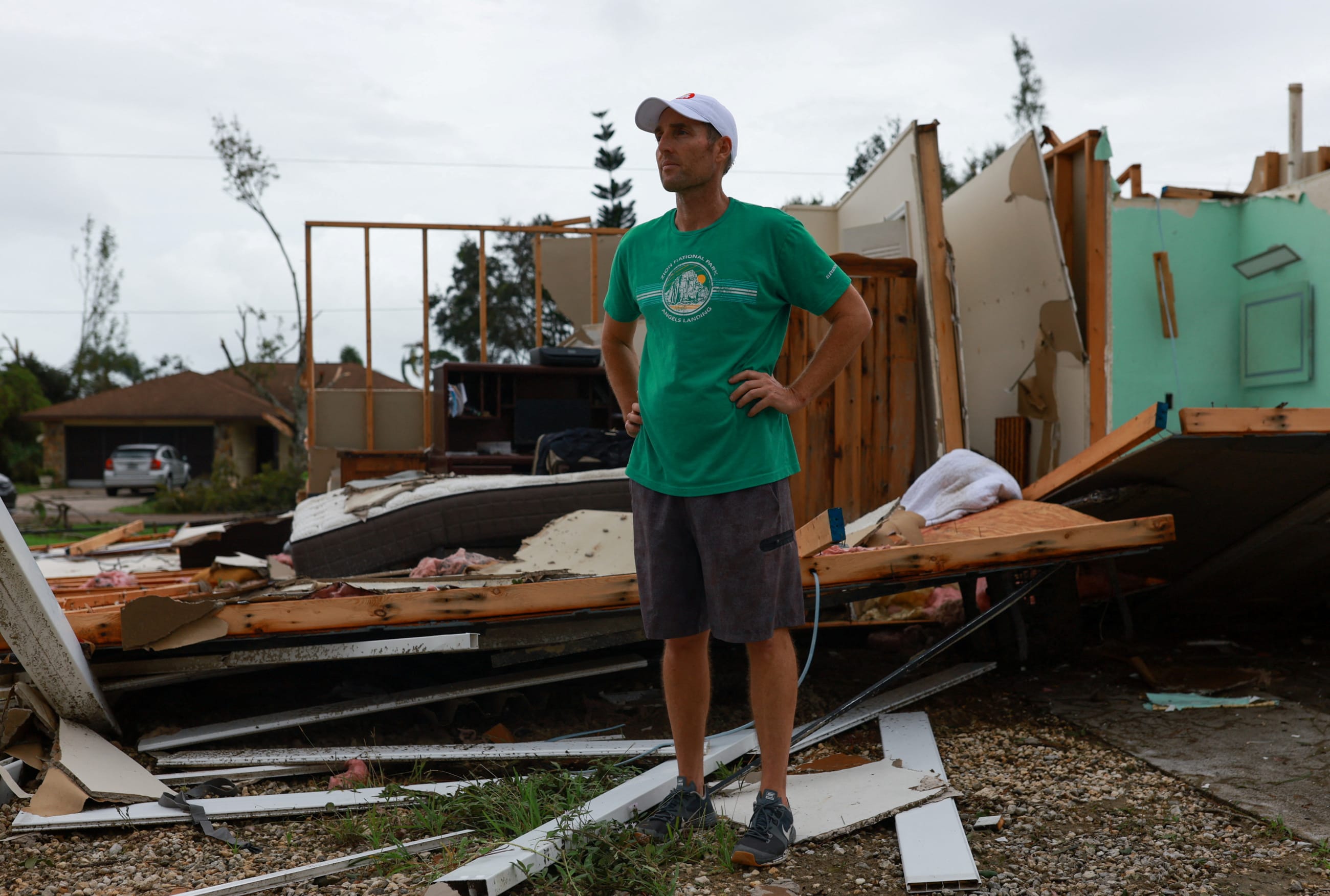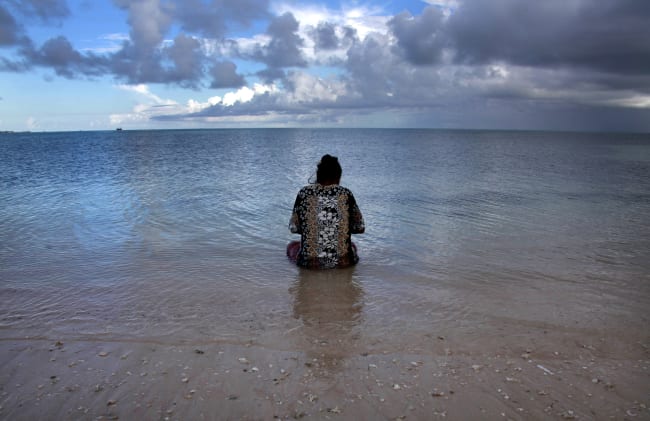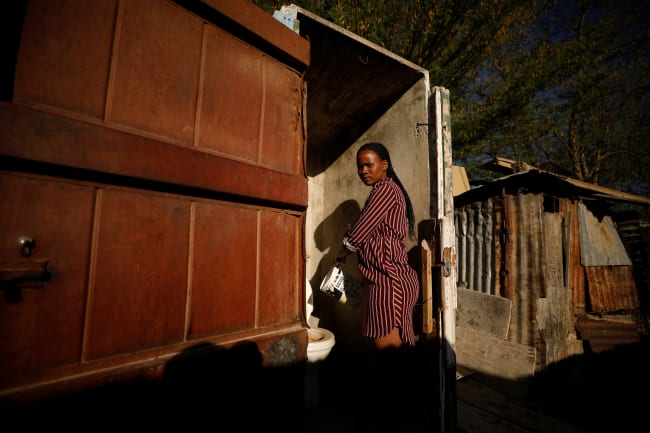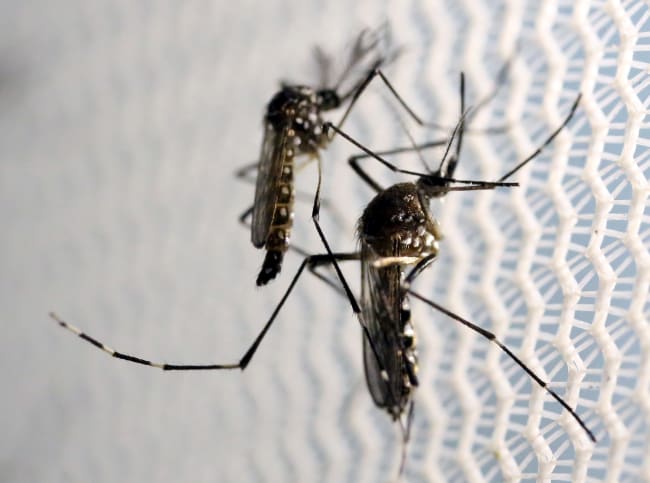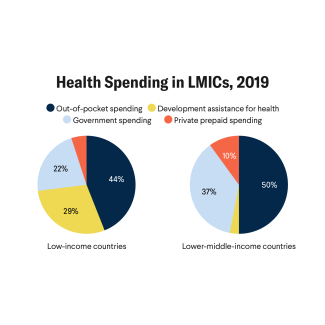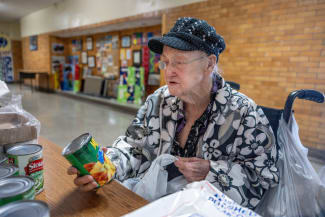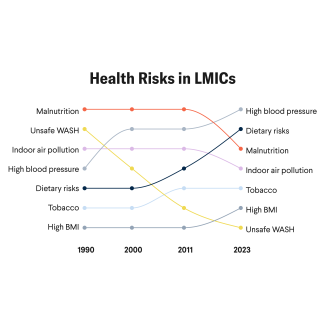Just 40 days before the U.S. presidential election, Hurricane Helene swept through six states, spreading heartache and loss to millions of people. Record-level flooding stretched for more than 600 miles. Parts of Florida got hammered again by a separate hurricane—Milton—a little over two weeks later. Combined, Helene and Milton cost more than 250 people their lives. Survivors will spend weeks shoveling mud and sand, finding new housing, and salvaging water-soaked possessions.
In addition to all this harm, victims may also discover themselves disenfranchised. The destruction from these hurricanes will likely threaten some voters' right to vote, a fundamental democratic right. With the November 5 presidential election fast approaching, the storms have forced election officials to scramble in affected places to ensure that ballots get distributed, cast, and counted.
In the wake of disaster, many voters may have to prioritize urgent tasks—such as finding shelter, getting schooling for their children, accessing routine health care such as dialysis, or searching for a new job—over registering to vote and casting a ballot. Other voters simply may not be able to make it to the polls: Helene alone washed out hundreds of miles of roads, destroyed entire sections of highways, and caused numerous bridges to collapse. The scale of the damage is such that some repairs will extend beyond Election Day.
And, as more carbon pollution accumulates in the atmosphere from continued burning of fossil fuels, climate-worsened extreme weather will increasingly hinder the process of voting.
Immediate Fallout From the Storms
Climate change makes "natural hazards" unnatural. In the case of Helene and Milton, it made the storms more dangerous. Hot water is hurricane food, and Helene went from being a relatively minor tropical storm to a formidable Category 4 in two days as it passed over the Gulf of Mexico's bathwater-warm temperatures—ones that were made up to 500 times more likely by climate change.
The destruction from these hurricanes will likely threaten some voters' right to vote, a fundamental democratic right
Climate-fueled storms can bring rain that falls like a bomb. Residents in some parts of the election swing state of North Carolina experienced 32 inches of rain when Helene stalled. Scientists with World Weather Attribution have estimated rainfall was at least 10% heavier than would have been the case without climate change. Similarly studies calculated that, absent climate change, Milton would likely have made landfall as a Category 2 storm, not a Category 3.
The destruction resulting from these storms has already wreaked havoc on the electoral process. The hurricanes displaced tens of thousands, including election office employees. They left many without water and electricity. Cell and internet service disappeared. The U.S. Postal Service suspended delivery operations in parts of North Carolina; in Florida, Hurricane Helene made landfall on September 26, the day that some local officials were to begin sending mail-in ballots to voters.
People living in temporary quarters may not receive their ballots. Polling places in both North Carolina and Florida suffered damage. An estimated 1.27 million voters—16.5% of registered voters—live in areas affected by the storm in North Carolina, according to voter registration records.
Officials have responded in myriad ways to the potential election process upheaval. Florida Governor Ron DeSantis refused to extend voter registration deadlines but later granted hard-hit counties flexibility in distribution of mail-in ballots and siting and staffing of polling places. In North Carolina, the state's election board sought to reduce the barriers to voting by authorizing new voting sites, extending early voting hours, recruiting poll workers from less affected places, and pushing voter information to emergency shelters. The legislature also passed an emergency funding package that included $5 million directed to the election board for hurricane recovery. In South Carolina, a judge ordered officials to extend voter registrations; in Georgia and Florida, similar proposals were rejected. Meanwhile, rumors and disinformation have made it harder for voters to obtain accurate information.
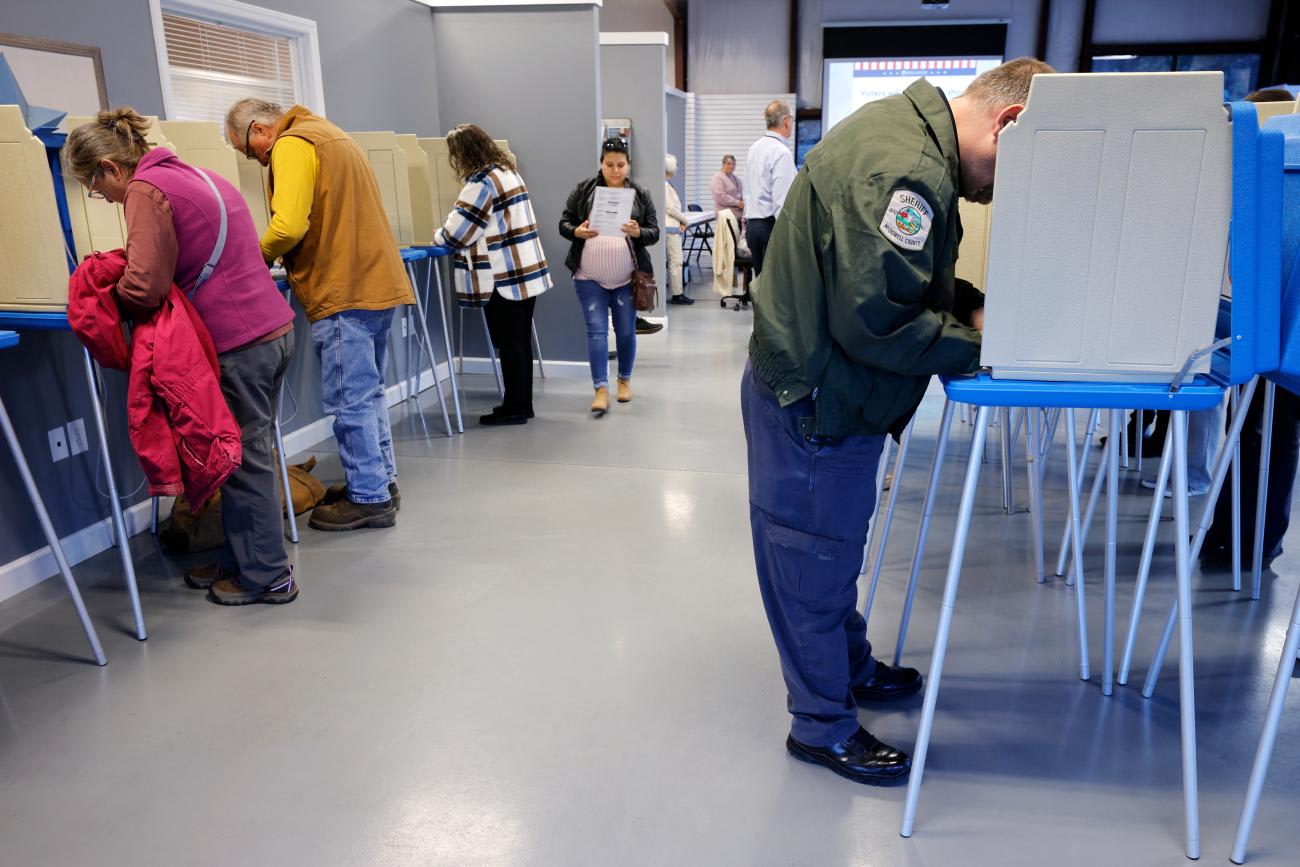
Heat, Health, and the Future of Elections
It is not just storms and floods that bedevil elections with extreme weather—and not just on Election Day, but throughout the process of registration, campaigning, voting, and vote-counting. Climate change exacerbates wildfire risk, generating fires so big that they spawn their own weather, spreading embers miles further. In 2020, sheriffs' deputies rescued ballot boxes threatened by late-season wildfires in Colorado.
Climate change also brings heat so extreme that it can damage the kidneys and the heart and even lead to death. Higher temperatures are especially dangerous for older people and pregnant women, making it hazardous to be outside to register, campaign, or vote. During India's recent elections, which extended over six weeks, elevated temperatures reportedly killed 33 poll workers in a day. In the days leading up to Mexico's June election, temperatures topped 100o Fahrenheit, forcing some voters to give up on casting their ballots. High temperatures at political rallies in Arizona and Texas this June caused dozens of people to seek medical attention.
Absent vigorous action to cut the accumulation of heat-trapping gasses in the atmosphere, more climate-juiced extremes lie ahead. Unnatural disasters will continue to undermine the ability to cast a ballot and have it counted. Yet election officials have taken few steps to prepare for a future in which extreme weather becomes increasingly prevalent.
Higher temperatures are especially dangerous for older people and pregnant women, making it hazardous to be outside to register, campaign, or vote
They don't need to start from scratch. Most states allow voters to cast their ballots before Election Day, be it in person or by mail. For example, North Carolina, which Helene devastated, allows both options, as do 37 other states and Washington, DC. But in an emergency, some of these options will not work, nor may casting a ballot on Election Day.
With climate change fueling ever greater extremes, election officials need to consider all options to handle unforeseen weather, paying close attention to how to ensure election integrity and promote public trust. The upheaval brought by climate-fueled disasters can open the window for real or perceived electoral mischief as election officials struggle to respond, even aside from simple confusion about how, when, and where to vote. Experts in election procedures note that elections can be made more resilient through alternative plans for communication of changes in polling places, alternative ways of voting, flexible procedures for lost identification papers, and more.
As election officials look to the future, the arrival of more wicked weather must not come as a surprise. Electoral planning needs to envision increasingly severe extremes that disrupt the casting and counting of ballots. Ensuring safe and secure elections requires greater effort in ever hotter times.
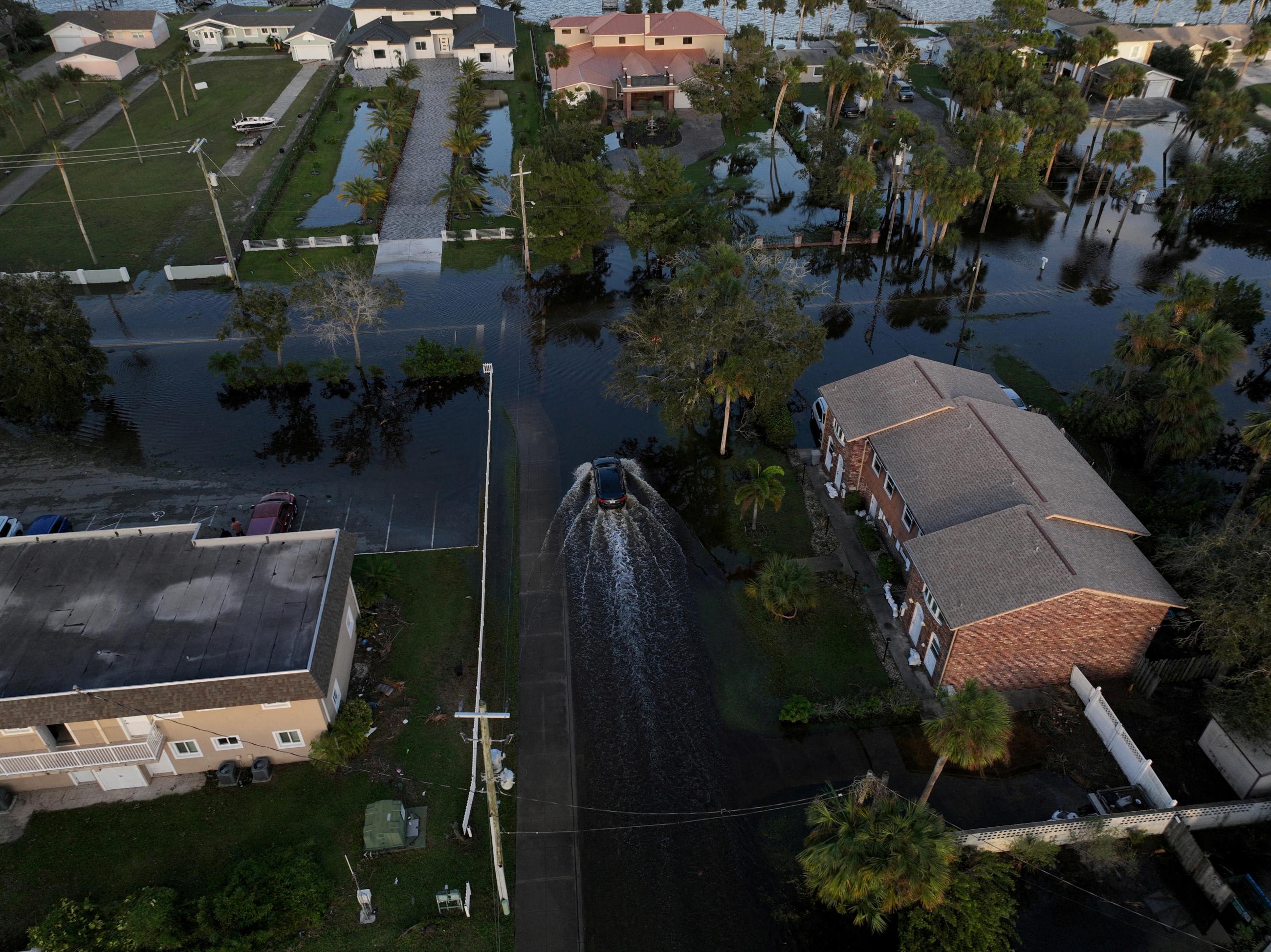
AUTHOR'S NOTE: For more, see our report Disenfranchised by Climate Change, which was released in September.
